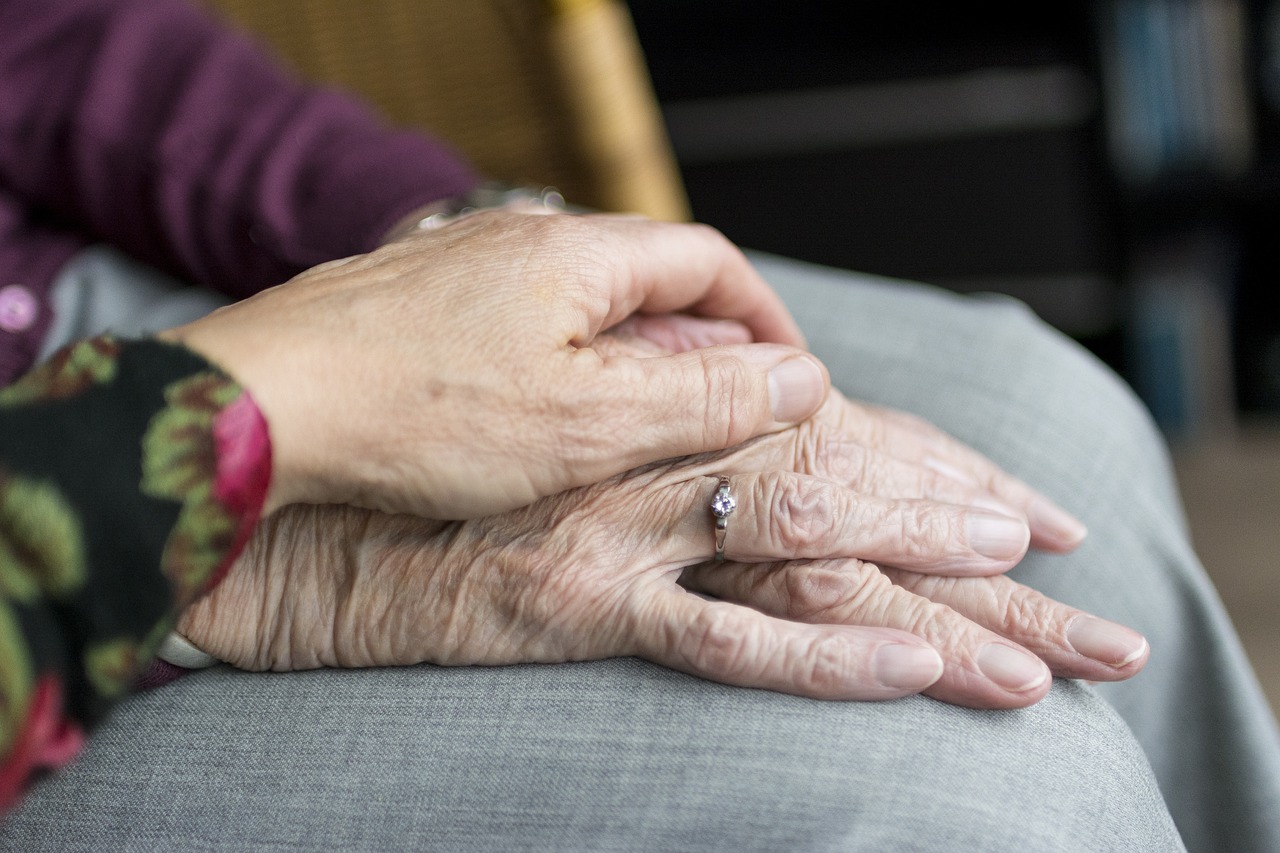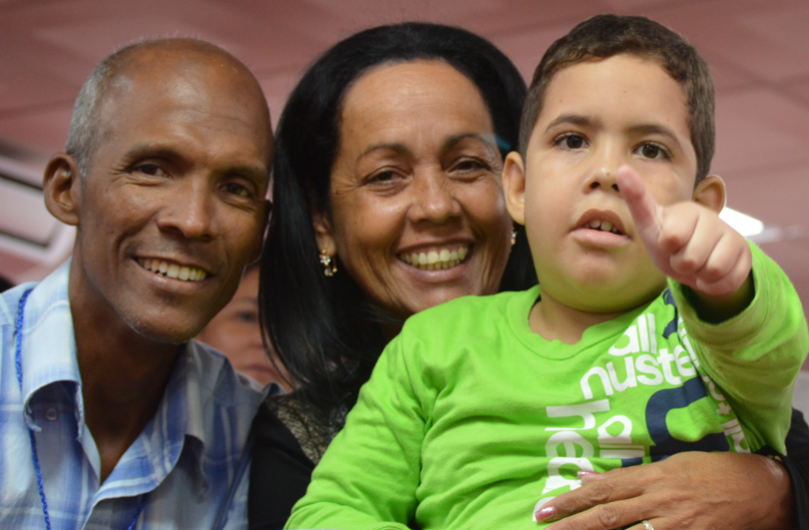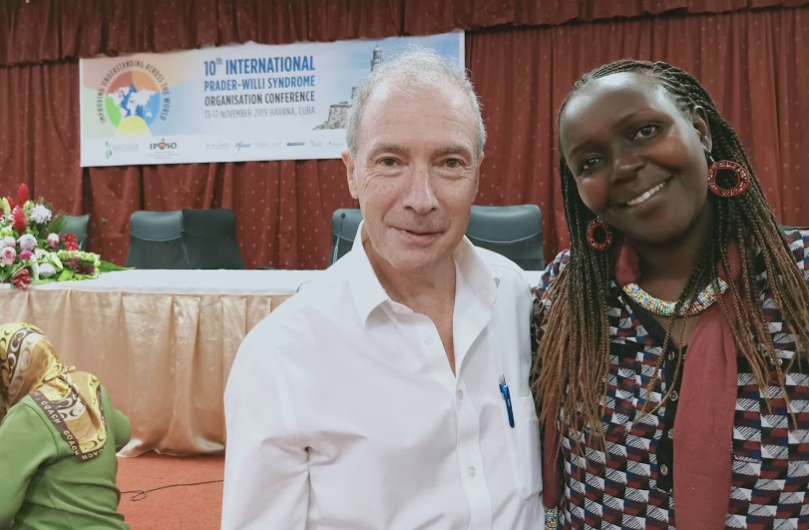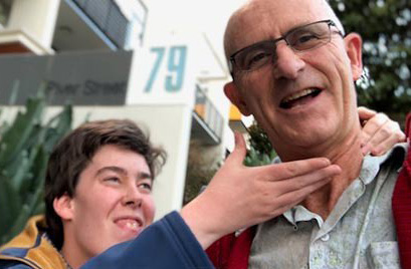Preparing for the future: When parents die
There are many practical and emotional reasons to plan for the future when you are the parent of a person with PWS. Thinking about the future, and all the issues that need to be addressed, is very complex and requires very well planned and detailed logistics. We will all be absent from our children’s lives at times due to illness, travel, work or respite, but also finally, when we die.
If, from the beginning, we can organise periodic breaks for our children and leave them in the care of others, it can be a way of training and preparing them to accept life without us. Depending on local circumstances, the person with PWS may move to a group home as an adult and already be building a life that is less reliant on us as they grow older.
A way to help prepare ourselves (and the wider family) is to ask the following questions. Although we must accept that we can never be completely prepared for every eventuality.
We can ask ourselves:
-
- Who is going to take care of the person with PWS?
- Where will they live?
- How will their health needs be managed and paid for?
- What income will they live on?
- Who will be in charge of managing their income or any assets that we leave them?
- Who is going to tell them of our death?
- Do we want them to attend our funeral?
- Who is going to ensure that our provisions are complied with?
As each of these questions is answered, others will arise, for example thinking about the person we want to look after them:
-
- Is the person who is going to take care of them trained, or do they need some training?
- Is that person aware of our decision and do they accept it?
- If that person for some reason can’t take on this responsibility, then who else could do it?
Depending on the answers to these questions, we will need to develop a plan and think carefully about its execution.
Developing a plan
As parents we prepare our children to be as independent, autonomous and functional as is possible for someone living with PWS, in all aspects of life. We prepare our children for their adulthood by developing good habits, being polite, taking care of their own hygiene, cleaning, tidying etc., but they will always need some support in their life, and we need to plan for when we are not with them. To prepare them involves gradually including other people into their lives so that the changes will not be too sudden and difficult for the person with PWS to accept.
-
- Does the person with PWS have relatives who might want to play a role in their care that goes beyond their existing relationship? Look for opportunities to talk about this issue and talk through any concerns and questions.
-
- If that is not the right option in your family, then who is going to take care of the person and their needs? Where will the person live? What options are available so that we can leave our children in the best possible care?
-
- Is it appropriate to talk to the person with PWS about this situation? How can we do it without generating more anxiety than they already experience due to their syndrome? At what time in life should these conversations happen?
As caring parents, these are questions which need to be thought about from childhood and not wait until our old age or in the worst case, to leave the problem to others.
A parent writes (From a parent of an older child)
I think when someone else dies who we know, then that is a good time to talk with the person with PWS, because it is something they are currently aware of. We can ask questions like, “Who would you like to take care of you or support you if I pass away? But of course, this won’t be just yet”. Just gently open the door to the idea that everyone dies sooner or later. I am lucky in that my daughter is in a residential home, where I know she will be cared for when I die. If it is possible, arrange for your son or daughter to spend as much time as possible in the company of people who will look after them when you die, so that the transition is slightly easier.
A brother writes:
Losing your parents is undeniably one of the most challenging and heartbreaking experiences life throws at you. As a brother of a person with Prader-Willi syndrome, I find myself grappling with the immense void left by their absence. Not only must we endure the pain of losing our beloved parents, but we are also entrusted with the responsibility of continuing to care for our sibling with PWS. This duty goes far beyond merely understanding their temperaments and routines; it necessitates a comprehensive understanding of their unique needs and unwavering support.
When a relative or other person takes on the role of primary carer
Preparing to shoulder this role requires more than just being familiar with the person with PWS’s daily life. The new carer needs the invaluable knowledge and guidance that the parents can provide. Parents hold crucial information about the person’s medical insurance, healthcare providers, specialists, medications, schedules, and educational or workplace support. The new carer must be well-versed in their nutritional plans, allergies, clinical history, and any relevant financial and legal arrangements. Gathering this information together to pass on allows the new carer to step into the parents’ shoes and take on the responsibility of providing the best possible care for the person with PWS.
Documenting and organising essential information about the person’s care, from medical details to educational plans, is vital. Storing this information securely, such as in the cloud, with access given to relevant parties, ensures that it remains accessible and never lost.
It is also important to consider the practical supports that the new carer may need. Will they be able to afford to support the person with PWS? Will taking on the support role require them to give up their paid employment? Is their accommodation large enough to accommodate another person? What are the legal and financial aspects of taking on this role that you need to be aware of in your country? There may also be legal issues around mental capacity and decision-making that you need to be aware of.
In addition to practical considerations, the emotional toll of losing one’s parents or a close relative, and then also assuming this new role, cannot be overlooked. New family carers must learn to navigate their own grief while being a source of strength for the person with PWS. Communicating the concept of loss to the person with PWS requires sensitivity and understanding. Equally important is recognising that one cannot do this alone. A person must seek support from other family members, friends, and professionals who can help shoulder the weight of responsibility and advocate for the person with PWS’s needs and happiness.
As your family embarks on this journey, let us remember that love and understanding will be your guide. We must strive to establish consistency and reliability in the person with PWS’s life, familiarising the wider family and other carers with the person’s needs, spending quality time together, and showing unwavering support. With patience, education, and a commitment to the person’s well-being, we can navigate the intricate path of caring for a person with Prader-Willi syndrome after the passing of their parents.
This article was written by IPWSO’s Famcare Board.
2023

International Community
IPWSO was established so that PWS associations, families, clinicians and caregivers around the world could exchange information and support and have a united global voice under one umbrella.
Information for Medical Professionals
The latest medical and scientific research and information, plus guides into common medical issues affecting people with PWS.



